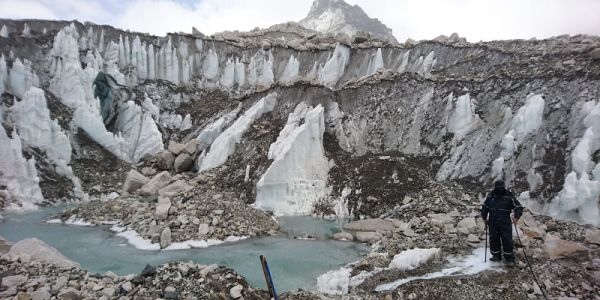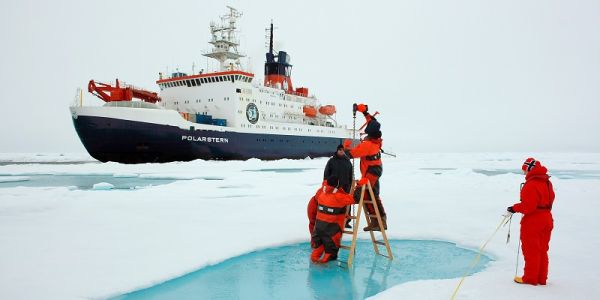
Climate change affects insects’ ability to evade predators
Harmless flies have evolved over millions of years to mimic the appearance of stinging insects, but new evidence suggests climate change is reducing the effectiveness of that disguise.

Harmless flies have evolved over millions of years to mimic the appearance of stinging insects, but new evidence suggests climate change is reducing the effectiveness of that disguise.

Professor Piers Forster has been appointed to the Committee on Climate Change and will help to shape environmental legislation and policy.

Ice temperatures inside the world’s highest glacier on the slopes of Mount Everest are warmer than expected and especially vulnerable to future climate change, warn glaciologists.

A team of more than 100 scientists has assessed global warming's impact on thousands of tree species across the Amazon rainforest, assessing the winners and losers from 30 years of climate change.

The first detailed analysis of air pollution trends in China reveals a 20 per cent drop in concentrations of particulate pollution over the last three years.

An extensive new study will aid scientists in updating conservation strategies and understanding how climate change is affecting species around the world.

A new study has produced a detailed estimation for when there was enough oxygen in the Earth’s atmosphere to support large land-based life, such as dinosaurs and eventually humans.

A extensive study on the effects of warmer springs on plant growth in northern regions shows substantially reduced plant productivity in later months.

A recent study of more than 100 years of river level records from the Amazon shows a significant increase in frequency and severity of floods.

A research ship carrying 80 international scientists, including researchers from the University of Leeds, is studying the region’s climate system.